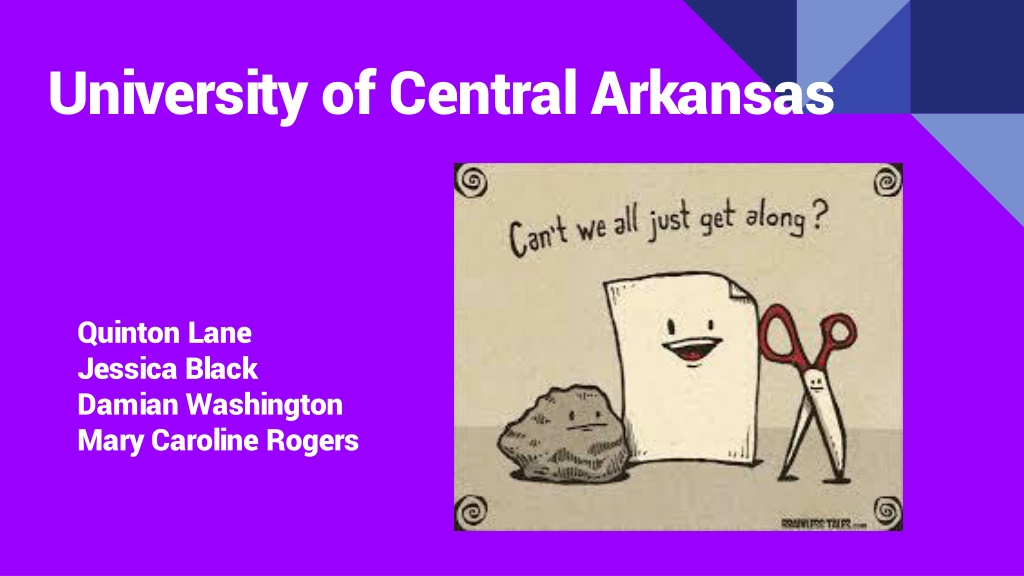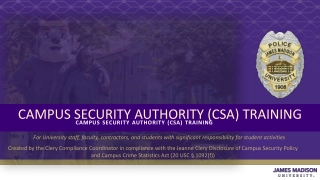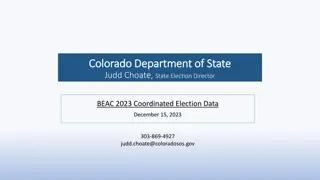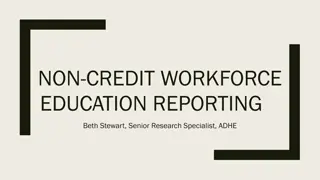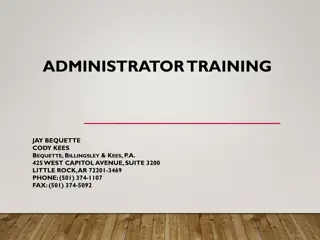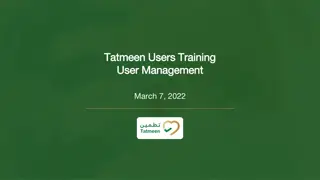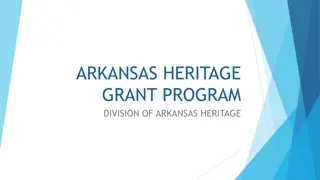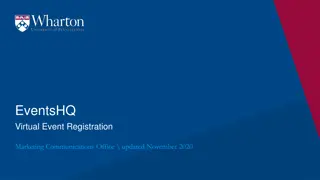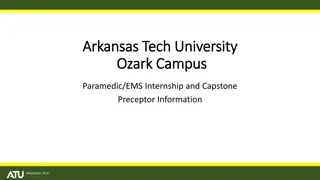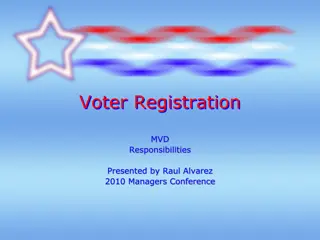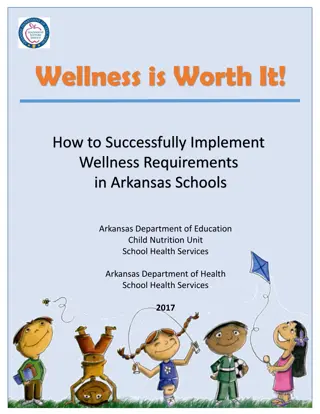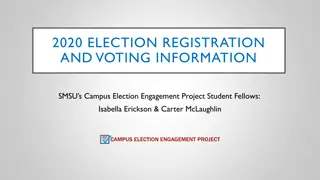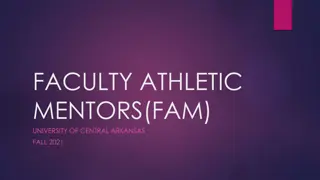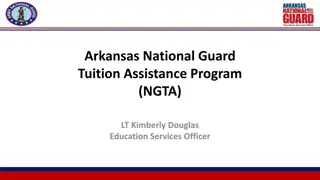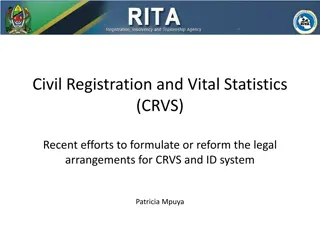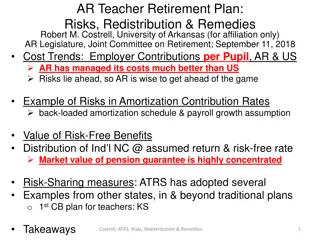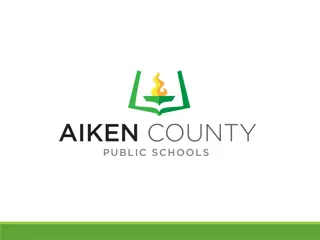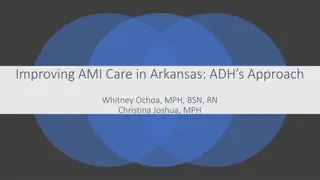Enhancing Campus Event Registration Procedures at University of Central Arkansas
Analyzing and adjusting the current speaker/event registration practices on campus to align with the institution's mission and vision. The Campus Speaker/Event Approval Committee's purpose, committee members, student focus groups, and event registration requirements are outlined to ensure the safety, well-being, and development of all students. Stakeholder impact assessment and assessment methods for anticipated results are also included in the objectives.
Download Presentation

Please find below an Image/Link to download the presentation.
The content on the website is provided AS IS for your information and personal use only. It may not be sold, licensed, or shared on other websites without obtaining consent from the author. Download presentation by click this link. If you encounter any issues during the download, it is possible that the publisher has removed the file from their server.
E N D
Presentation Transcript
University of Central Arkansas Quinton Lane Jessica Black Damian Washington Mary Caroline Rogers
Objectives Analyze the current practices of speaker/event registration on campus Adjust current policies to reflect the mission/vision on campus as it regards to public speakers and events Develop a required actions for campus events Determine how these updates will affect the stakeholders of the institution and create assessment methods for the anticipated results.
Campus Speaker/Event Approval Committee Purpose: The purpose of the Institutional Events committee is to approve, oversee, coordinate, and facilitate campus-sponsored events and speakers to ensure the safety, well being, and development of all students. The University Events Committee is not a regulatory or enforcement agency.
Campus Speaker/Event Approval Committee Committee Members Director of Facilities Operations Director of Union and Programming Director of Student Activities Director of Leadership and Student Involvement
Student Focus Groups After the events of the messy forum, we hope to provide a space for students to process their feelings and views related to the forum. We will send out an email for students to sign up for focus groups if they are interested; 12 members will be the group maximum. Each group will have 1-2 group leaders from counseling services and (depending on numbers) administration, faculty, or staff with experience in counseling. In addition to processing their reactions to the forum, group leaders will ask students to suggest ways to prevent this type of outbreak from happening again.
Event Registration Event Registration Form Must be submitted at least 5 weeks prior to proposed event date. Must be approved by Dean of Students Office. We need to know biography and background of the speaker along with their goals and purposes. Outline the topic of the forum or speech.
Event Registration Event Registration Form Sponsoring Organization Date/Time of Event Location Name of Speaker Purpose of Speech Intended Audience
Guidelines for University Speakers Content of speech must not... Use abusive or threatening language or behavior Promote violence, hatred, or violation of the law. Discriminate against or harass any individual or group due to nationality, sex, gender, race, ethnicity, religious belief, disability, sexual orientation, or age. University administration has the right to halt an event at any time if the speaker or speakers violate any of these guidelines or if outbreaks occur as a result of the topics discussed during the forum.
Guidelines for University Speakers The ultimate difficulty of this Case Study: Finding a balance between promoting Freedom of Speech and preventing uncontrollable outbursts. Due to the nature of this delicate balance, we aim to focus more diligently on the training of students in conflict management than the restriction of campus speakers. In addition, we recognize that exposing students to beliefs and ideas that are different from their own causes growth and development.
Programming Involving Speakers As student affairs professionals, we play a role in student moral development by creating spaces to discuss different world views. In addition to these guidelines, we hope to implement programming that will work to prepare students in ways to deal with new ideas that may not agree with their own beliefs and/or experiences. We do not want to avoid all possible situations that might cause students to think outside their own perspectives because that is when growth and development occur. Instead, we hope to prepare students, faculty, and staff with appropriate ways to handle conflicts, external and internal.
Programs in Conflict Mediation Killam & Degges-White (2017) discuss the importance of workshops in conflict mediation: Conflict mediation equips students with the skills to diffuse tension around different points of view and to rechannel the tensions to positive directions, eliciting exchange of differing ideas and common ground building (58). In order to avoid the ruckus that occurred during our last forum, we hope to provide ways for students to peacefully respond to conflict.
Programs in Conflict Management Healthy debate among students fosters greater understanding of their own points of view and provides challenges that broaden perspectives (59). We hope to promote safe spaces for moral development among audience members In order to promote moral development in students, we must give them the tools to express themselves in a way that promotes understanding and growth.
Court Rulings to Consider First Amendment Feiner vs. New York: Heckler s Veto Authorities can put an end to speech if there is clear and present danger Doe vs. University of Michigan A university cannot censor speech because it does not agree with the viewpoints
Theories Applied Perry s Theory for Moral Development Allowing speakers on campus of varying viewpoints allow students to go through Perry s Development Schema College experiences have a role in overall student development (Killam, 53-54) Theories of Moral Development The college setting provides an opportunity for students to learn a higher order of thinking (Killam, 66)
Theories Applied Kolb s Theory Experiential Learning Elements of Kolb s learning theory Learning should be understood as a process Learning is relearning Conflict in learning is what actually drives learning (Killam, 76-77)
Assessment Develop an assessment and evaluation plan for student activities programs. Student/committee surveys and focus groups will be conducted after major events A staff retreat to focus on recent programs/speakers and planning for future events Ensure programs have been modified or rejected to support the purpose of the institution.
Conclusion Allowing a variety of speakers onto college campuses with a range of viewpoints allows a for collective cognitive dissonance within students which develops into elevated thinking within the individual student. This results in more informed and morally stable adults in society. This type of student development affects all institution stakeholders like community partners, campus officials, faculty, and staff by creating an atmosphere in which: Students actively challenge their own knowledge Students learn the extent of their intellectual parameters Students become secure in their beliefs and value systems as they progress through the models Student grow into well-informed adults.
References Killam, W. K., & Degges-White, S. (2017). College student development: applying theory to practice on the diverse campus. New York, NY: Springer Publishing Company, LLC. Feiner v. New York. (n.d.). Oyez. Retrieved February 19, 2018, from https://www.oyez.org/cases/1940-1955/340us315 Doe v. University of Michigan, 721 F.Supp. 852 (1989).
